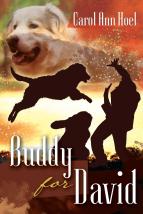 According to Wikipedia.com, Muses originated in Greek Mythology. Nine daughters of god and goddess Zeus and Mnemosyne named Calliope, Clio, Euterpe, Erato, Melpomene, Polyhymnia, Terpsichore, Thalia, and Urania, were said to be the goddesses of the inspiration of literature, science, and the arts.
According to Wikipedia.com, Muses originated in Greek Mythology. Nine daughters of god and goddess Zeus and Mnemosyne named Calliope, Clio, Euterpe, Erato, Melpomene, Polyhymnia, Terpsichore, Thalia, and Urania, were said to be the goddesses of the inspiration of literature, science, and the arts.
As far as I can tell, most writers that talk about their muse are not referring to any of the nine goddesses of Greek Mythology. However, some writers speak of a spirit or guide outside themselves that inspires them to write well and with ease. Some assign their muse a name and say that their muse has a personality and a presence. Some say that they write so furiously under the influence of their muse that they don’t know what they have written until they have read it afterward.
Writers with muses vary in their concept of the muse’s origin. One writer from my research spoke of her muse as possibly being a part of her own imagination inspiring her writing. If you wish to see her comment to a blog post about muses, click on the link at the bottom of this post and read the comments. This same blog contains a video of an author in which she speaks on the subject. She spends a lot of time getting to the subject, but she is a good speaker and what she said was interesting. It didn’t solve the mystery of the muse for me.
Researching this subject has made me curious. I wonder how many writers have muses compared with those that do not. I was unsuccessful in finding the right search term that would expose this information. Apparently, writers without muses don’t talk about it, or perhaps I didn’t find the right key word to search for their conversations.
I am not expressing an opinion about muses. I have nothing to offer but my research. I don’t have a muse. If I had a muse, I could say on any day that I couldn’t think of a thing to write that my muse didn’t show up. At least I’d have someone to blame for my wordless days.
I invite writers with or without a muse to contribute to conversation about this post. Tell me more if you please.
Resources:
Cally Jackson Writes – March 24, 2011, The writer’s muse – fiction or fact
Wikipedia.com – Muse


I don’t have a muse – not that I know of, anyway. Sometimes I wish I did, for my mind is often devoid of any creative ideas. While I know I should be writing, I’m stretched out on the couch with a cat or two draped over me, watching Judge Judy and eating Pepperidge Farm goldfish crackers or other snacks I should leave alone. I wish I knew how to generate some creativity and motivation.
LikeLike
I enjoyed reading your comment. I can imagine you lying on the couch beneath two cats eating Pepperidge Farm goldfish crackers and watching Judge Judy. I can relate to that. Blessings to you, Joyce…
LikeLike
Pingback: Wordpress Blogs - Wordpress Blogs .NET
I do notice a lot of writers mentioning their muse. I had to look it up to see what they were talking about! Interesting research you’ve done.
LikeLike
Thanks, Patti. I was curious myself and decided to look around for answers.
LikeLike
The muse has taken various forms for me at different points in my life. It’s often been someone with whom I have a relationship that inspires me. This may be because of what we talk about together, because of strong feelings I have about the person, or because of things she or he does. Sometimes the muse is my Ideal Reader, the reader for whom I imagine myself writing. I don’t know if my writing is any better with or without the influence of the muse, but I often feel much more highly motivated when I write in response to the muse.
LikeLike
Yes, I can see how the influence of a personal friend or acquaintance could be considered a muse by contributing inspiration to your writing. I especially see the link to the “ideal reader” you entertain in your thoughts while you write. What a grand inspiration that would be!
Thank you for your visit and comment. Blessings to you, Jennifer…
LikeLike
Just noticed your article. Very thoughtful. I think we might get by with an inner muse but I think a muse for a writer might be very useful. Somewhat like a coach or trainer in some fields but with a more personal intimacy. Most of the stuff on muses seems to imply the role that a romantic relationship had on the creativity of the artist. I have had a muse whom I did not recognize until late. I now miss her but it had nothing to do with romance and was based on more of coaching or mentoring relationship. She had inspired me to do some very creative writing. Thanks for your article. John P. My latest blog is at http://www.agingcapriciously.com I have written nearly 700 blogs now.
LikeLike
Thank you for your comment. You are a prolific writer of blogs. Very impressive. I’ll have to take a look for myself. It’s late now, so I’ll put it off until tomorrow. Thank you again.
LikeLike